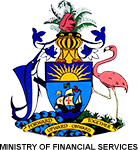Removing barriers to women’s participation in trade critical for economic development
12 Jul 2017
Removing barriers that prevent women from fully participating in trade is critical not only for the empowerment of women but also for economic growth and development in general, speakers at a high-level plenary on gender and trade said on 12 July. The plenary was held as part of the WTO’s Aid for Trade Global Review 2017.
In his opening remarks on promoting inclusive trade through women’s economic empowerment, Director-General Roberto Azevêdo noted that tradeable sectors are large sources of female employment, and that in developing countries, companies that export employ more women than those that do not.
“There’s no doubt that trade plays an important role in gender empowerment,” DG Azevêdo declared. “It helps to create job opportunities and provide better salaries. It encourages education and skills development. And it helps to increase financial independence.”
In Rwanda, for example, 74% of those engaged in cross-border trade are women, and 90% of them rely on cross-border trade as their sole income source. In China, 55% of digital entrepreneurs are women.
While this is positive, big imbalances remain, DG Azevêdo noted. Overall, women are under-represented in international trade, with only one in five exporting firms led by a female entrepreneur. Legal and regulatory barriers are often higher for women, and female-led businesses face greater difficulty in securing financing.
Small and medium size enterprises (SMEs) are a major source of employment for women, and Aid for Trade support for SME development has risen by around 50% between 2005 and 2013. This initiative can also make a big difference to women by helping bridge the digital divide, said the Director-General.
“The internet provides women entrepreneurs with easier and less expensive ways to access foreign markets,” DG Azevêdo said. “Fully realizing this opportunity requires better connectivity infrastructure, paired with the necessary skills and training.”
“Together, we can work to break down all of the barriers, and ensure that women everywhere can use trade as a springboard for their economic empowerment.” DG Azevêdo announced that the WTO had appointed its first gender focal point, who will help coordinate the WTO’s work on these issues. His full speech is available here.
Armand Tazafy, Madagascar’s Minister of Commerce, underlined the importance of women to the country’s economy and development. Women are “pivotal actors” in economic sectors such as textiles and agriculture, but their role and potential as entrepreneurs is not duly acknowledged nor tapped into.
“We all recognize women need to be empowered as a matter of urgency, to eradicate poverty and improve economic growth,” he declared.
AIsatou Touray, Minister of Trade for The Gambia, highlighted the importance of women to her country’s economy, particularly in sectors such as tourism and fisheries. Nevertheless, when it comes to financing, women are “completely in the background”, even though women entrepreneurs have a 98% repayment rate for loans.
Read more here: World Trade Organization

